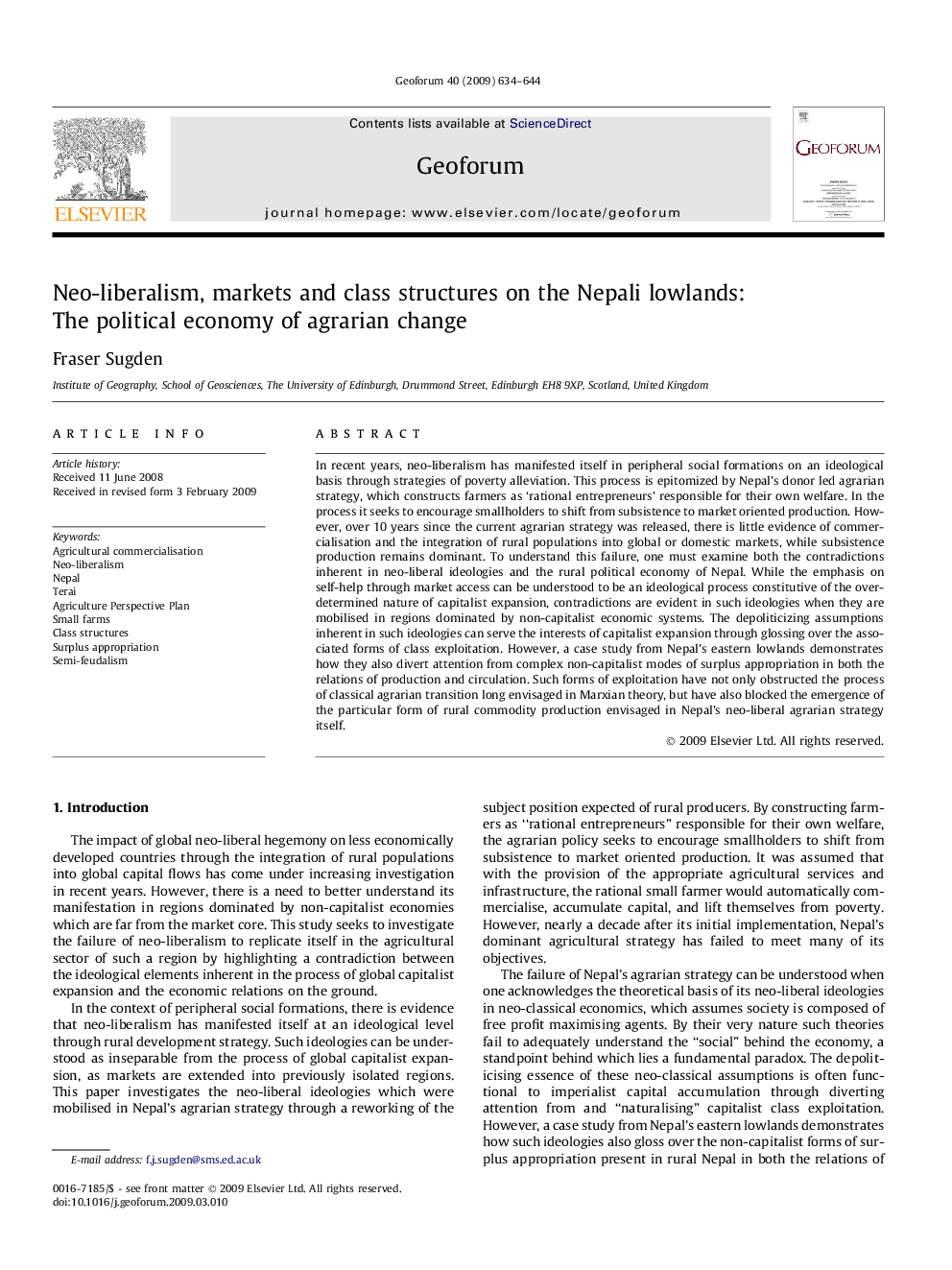| Article ID | Journal | Published Year | Pages | File Type |
|---|---|---|---|---|
| 5074944 | Geoforum | 2009 | 11 Pages |
In recent years, neo-liberalism has manifested itself in peripheral social formations on an ideological basis through strategies of poverty alleviation. This process is epitomized by Nepal's donor led agrarian strategy, which constructs farmers as 'rational entrepreneurs' responsible for their own welfare. In the process it seeks to encourage smallholders to shift from subsistence to market oriented production. However, over 10 years since the current agrarian strategy was released, there is little evidence of commercialisation and the integration of rural populations into global or domestic markets, while subsistence production remains dominant. To understand this failure, one must examine both the contradictions inherent in neo-liberal ideologies and the rural political economy of Nepal. While the emphasis on self-help through market access can be understood to be an ideological process constitutive of the overdetermined nature of capitalist expansion, contradictions are evident in such ideologies when they are mobilised in regions dominated by non-capitalist economic systems. The depoliticizing assumptions inherent in such ideologies can serve the interests of capitalist expansion through glossing over the associated forms of class exploitation. However, a case study from Nepal's eastern lowlands demonstrates how they also divert attention from complex non-capitalist modes of surplus appropriation in both the relations of production and circulation. Such forms of exploitation have not only obstructed the process of classical agrarian transition long envisaged in Marxian theory, but have also blocked the emergence of the particular form of rural commodity production envisaged in Nepal's neo-liberal agrarian strategy itself.
